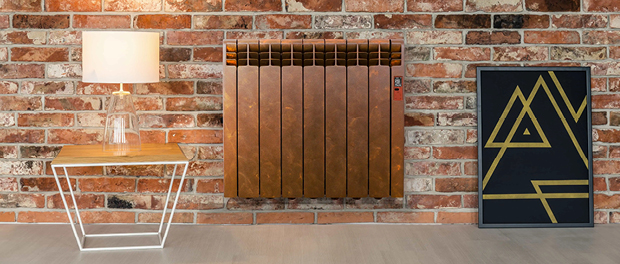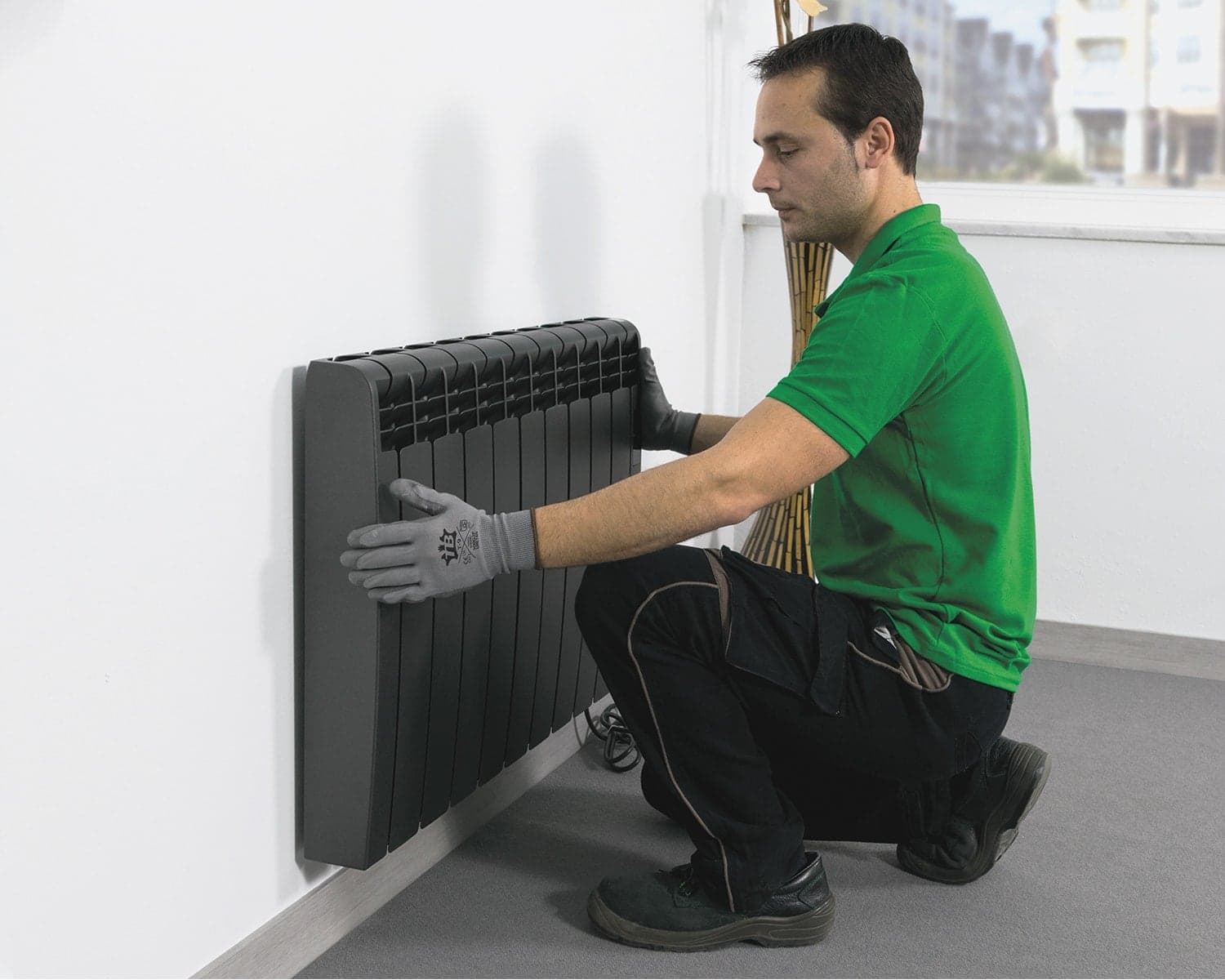Rointe – Why you should choose electric heating over gas

Do you often wonder which type of electric heating solution you should use? It’s an important question that carries implications for the energy efficiency of your home or property. For a long time, gas was considered the cheapest way of heating a property. It is the most common form of heating in UK homes, with around 8 million gas boilers sold every year in the UK. A gas system consists of a single boiler that heats up water and then pumps it through pipes to radiators throughout the property. It also provides hot water to the kitchen and bathrooms. Over the years, gas systems have largely remained the same with little evolution.
Join Rointe heating at stand E122, during the national Installer Show at the NEC. We’re exhibiting at the largest national show for installers and you can find our expert heating team at stand E122, where we’ll be on hand to answer your questions about Rointe electric heating systems. We’ve also got freebies for you! Find out about the brand-new loyalty scheme that rewards installers for purchasing Rointe products through wholesalers. If you sign up during the show, we’ll give you an extra gift!
Electric heaters, however, have evolved into an advanced alternative, with all the advantages of the old storage heaters but none of the disadvantages. The shift away from gas is gaining momentum, supported by a number of crucial factors:
1. Legislation: all new homes should meet a minimum EPC level C.
2. Value: gas heating installation expenses are much higher than electric and do not last as long on average.
3. Technology: electric heating technology is increasing in capability but reducing in price.
4. Ecology: consumers more aware of the need for clean and economical heating systems that are sustainable.
What are the benefits of electric heating?
Electric heating is incredibly versatile as it can be used for both air and water products. Moreover, with a whopping 64.7% of the energy used in EU households going towards heating, it is more important than ever to ensure your system is energy-efficient.
The latest developments in electric heaters include effective and fast components, new innovative thermal elements and amazing, state-of-the-art programming.

Installation
Electric heating systems are easier and cheaper to install compared to gas central heating that requires pipes, vents and ducts. They don’t require flue or pipework so there are no restrictions on building layout or design. Nor are there any planning issues. A simple connection to the electric circuit is all that is required, so for new build properties, this means it can go in at the second fix wiring stage.
It’s a big job to install a gas system and can take several weeks to fit new pipes, radiators and a boiler from a gas certified professional. It may also be damaging to your property.
With almost all electric radiators (like Rointe’s), a template and installation kit is provided. Therefore, it’s a simple job to drill the template holes, screw the support in place and slide the radiator into position. Then all you need to do is plug into the electric socket, switch on and instant heat is generated.

Safety & noise
Electric heaters are generally safer than gas as they do not burn fuel to generate heat. This eliminates risks such as carbon monoxide emissions and explosions. There are no water-filled pipes, so there is less risk of damage to the property from leaking or burst pipework.
Gas systems can be far noisier due to hot water rushing through the pipes. Kettling is a common noise and sounds much like a kettle boiling.
This is actually a warning sign, caused by a build-up of sludge or limescale. You will need a power flushing service to remove the build-up.
With electric systems, there is no noise emitted and no limescale build-up.

Ecological heating
New Lot20 regulations stipulate that all space heaters that consume energy with a nominal heat output of at least 250W, must comply with a minimum efficiency value, to lessen environmental impact.
Even though gas is the cleanest fossil fuel, it is still the UK’s biggest greenhouse gas emissions source. Gas systems produce damaging carbon emissions and with climate targets increasing, gas could become obsolete in the coming years.
Electric heating is clean and respectful to the environment. No polluting gases or heavy metals.

Value
Gas is cheaper than electricity to run on a daily basis, but the true price to consider is installation plus maintenance and running expenses, along with the average length of a products lifetime.
Electric heating is cheaper to install than gas, has no maintenance rates and lasts for up to 50% longer than the average gas boiler. It is also 100% efficient, meaning all the electricity you use and pay for converts into heat.
If you consider all the factors then electric heating beats gas by a considerable margin. To give you a better idea, we’ve put together an electric heating cost example that gives an estimate of what it will cost to efficiently heat a 3 bed home in the UK.
Gas heating wastes energy through the pipework. As the heated water snakes its way through the pipe system, heat will radiate from the pipes. You will also have to activate the whole system, even if you just want a single radiator on. You can turn other radiators off, however, the boiler has to heat the whole tank of water in one location and send it to your desired radiator.
With electric heaters, there is no heat loss between the power source and the heat output. It is engaged as soon as it is switched on with a short cable in place of a complicated pipe network.
Control
Adding connectivity features into household appliances gives users convenience and consumes less electricity. Coupled with cleaner electricity generation, this presents a low carbon heating solution.
Little do most users know that using a connectable heating solution can help cut annual heating bills by up to 30%.
With gas systems, you can program the majority to a heating schedule that suits. However, it’s not possible to separately control different radiators or rooms. They are on either according to your programming or off. Obviously, this limits how much energy you can save.
There are Wi-Fi controlled options available with gas, but these tend to be an additional (or replacement) thermostat that needs to be purchased and fitted. This generally needs installation by a professional.
Built-in Wi-Fi now comes as standard with many electric heating systems, without the need for additional thermostats or parts. In fact, we were one of the very first manufacturers to incorporate Wi-Fi into our products, all controlled by our free app, Rointe Connect.

Learn more about our range of electric heating systems including radiators, towel rails, domestic hot water heaters, underfloor heating and smart heating controls.
You can also buy Rointe heating systems now from our online shop.


